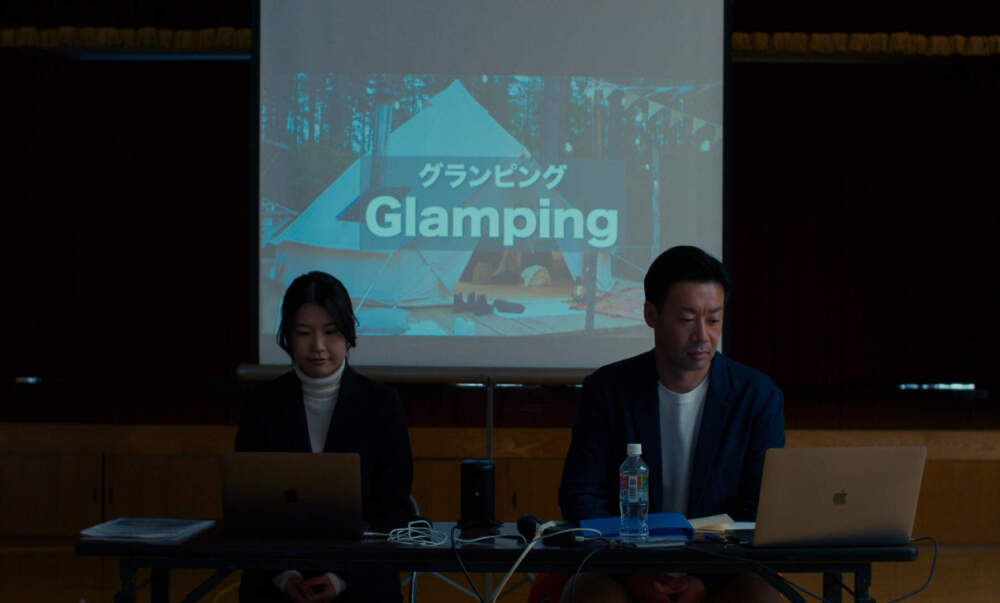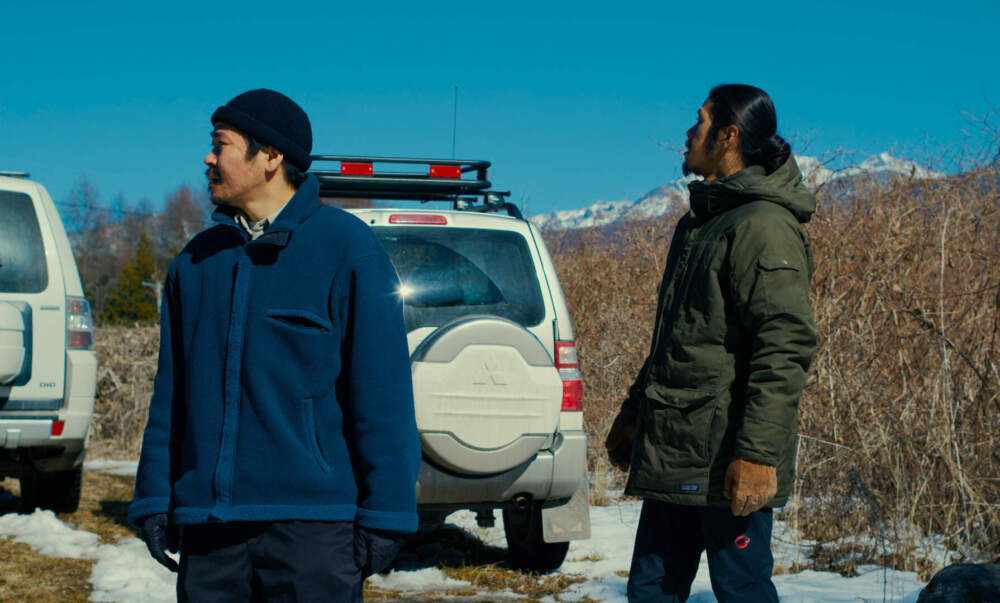Advertisement
Review
'Evil Does Not Exist' explores the disharmony in our relationship to nature

One of the most perplexed crowds I’ve ever been a part of was the local premiere of “Evil Does Not Exist” at last October’s Independent Film Festival Boston Fall Focus. It was a packed house for Ryûsuke Hamaguchi's hotly anticipated follow-up to his beloved arthouse smash “Drive My Car,” which had not only nabbed 2022’s Academy Award for Best International Feature but was also the first Japanese language film to be nominated for Best Picture (assuming Clint Eastwood’s “Letters from Iwo Jima” doesn’t count).
This particular room couldn’t possibly have been more excited for this particular film, and you could feel the energy of everybody vibing with it right up until the final 15 minutes, which take such an abrupt turn into the abstract and haunting that half of the Brattle audience stayed in our seats scratching our heads long after the lights came up. For the rest of the festival, it seemed every conversation about the film began with a hesitant, “So…?”
I haven’t seen an eager audience so confounded by an ending since “No Country for Old Men,” which coincidentally was also an IFFBoston screening and left me in such an enthralled daze that I accidentally hit Josh Brolin with a door on my way out of the Somerville Theatre. (But that’s another story.)

A second viewing helps clarify things a bit. This is not to imply that “Evil Does Not Exist” is one of those puzzle movies that boring young men — and it’s always young men, isn’t it? — spend Reddit threads trying to “solve” as if cinema were another form of Sudoku. But rather, it’s easier to appreciate what Hamaguchi is attempting here if you know going in that you won’t be getting a conventional conclusion. His films are typically fluid, conversationally-focused character studies with an unobtrusive directorial touch that helps their lengthy running times seem to glide right by. (His “Happy Hour” runs 317 minutes, while “Drive My Car” clocks in at a comparatively modest 179.) But “Evil Does Not Exist” is a short movie by Hamaguchi standards — just over an hour and three quarters — and it’s interrupted by sometimes alarming stylistic choices that constantly call attention to themselves.
So… what’s it about? Well, on the surface this is a story about a close-knit forest community outside of Tokyo that comes together to try and fight off a “glamping” site (short for “glamorous camping,” a trendy luxury hobby that’s a new one for me) being built upstream. The new development is the brainchild of a talent agency that doesn’t appear to know much about camping — glamorous or otherwise — and they only purchased the land to try and cash in some pandemic subsidies that are expiring soon. They’ve sent two low-level executives to try and warm up the locals with a town meeting that quickly degenerates into a farce after it is explained that the proposed site’s too-small septic system will only allow “an acceptable amount” of human waste into the community’s water supply.

The meeting, which is like a mini-Frederick Wiseman movie plopped into a Japanese pastoral, is the film’s serio-comic highlight, establishing the taciturn Takumi (Hitoshi Omika) as the village’s authority figure. The gruff woodsman is an odd fellow, easily distracted and often forgetting to pick up his 8-year-old daughter Hana (Ryô Nishikawa) from school. He’s a bit off. Yet the floundering PR rep sent by the agency (Ryûji Kosaka) immediately wants to be like Takumi, amusingly asking if he can try to chop wood, too. This stuff is all funny and human in ways we’ve come to expect from Hamaguchi, but with uneasy undercurrents that grow more sinister as the film wears on.
If “Drive My Car” gave us Chekov’s “Uncle Vanya” by way of Haruki Murakami, “Evil Does Not Exist” is the filmmaker’s take on Ibsen’s “An Enemy of the People,” albeit significantly less chatty. There’s not a word spoken aloud for the first 10 minutes of the movie. (Hamaguchi has also edited an alternate, 75-minute silent version of the film called “Gift” to be projected behind live performances of Eiko Ishibashi’s score. They took the show to Lincoln Center last week, but so far there are no plans for a Boston engagement.)

“Evil Does Not Exist” begins with a long, wordless sequence in which a gliding camera gazes upward at the sky through the latticework of tree branches. It’s a beautiful angle and also an unnerving one, as we’re seeing an impossible vantage point from which a person could look at the woods — unless your body was being dragged. Ishibashi’s mournful score is unusually dominant for a Hamaguchi film, and rather than inconspicuously fading the music during transitions, he cuts in and out of it hard, leaving us jolted by the sudden silences. There’s something intentionally disjointed about the filmmaking: camera angles are slightly obtuse and ambient sounds are mixed distractingly loud. His scenic shots of the forest are hardly soothing. These woods are lovely, dark and deep, but there’s menace in the snowy flora and fauna.
After seeing the picture again I’ve come around to thinking that “Evil Does Not Exist” deliberately uses such disorienting cinematic devices to evoke the disharmony and inevitable imbalances in man’s relationship to nature. The people of this community have worked out an equitable arrangement with the land, but there’s always some idiot’s septic system upriver that’s going to throw everything out of whack. In which case — and we’re getting pretty heavy into metaphor here — there will be violent and unforeseeable consequences visited upon our children. That’s my interpretation of the ending, anyway. As for the title, your guess is as good as mine.
“Evil Does Not Exist” opens Friday, May 10 at the Kendall Square Cinema and the Coolidge Corner Theatre.
